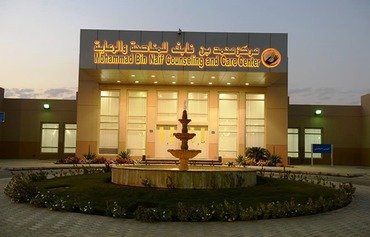Ramped up efforts to root out the elements and ideology of the "Islamic State of Iraq and the Levant" (ISIL) in Saudi Arabia have resulted in significant successes over the past three years, officials tell Al-Mashareq.
These include the arrest of numerous ISIL elements and supporters, the foiling of terrorist attacks and the closure of a large number of bank accounts that had been used to finance the group, they said.
"Saudi security and intelligence efforts made over the past three years in fighting ISIL have been very important," former Saudi army officer and military attaché Maj. Gen. Mansour al-Shehri told Al-Mashareq.
These agencies have worked to uproot ISIL, which has sought to gain a foothold in the kingdom by brainwashing youth and foreign nationals, exploiting their religious sentiments and taking advantage of regional turmoil to sow discord, he said.
Last month, the Foreign Ministry revealed that over the past three years, 117 Saudi and foreign nationals have been convicted on terror financing charges, and that 226 bank accounts used to finance ISIL have been closed.
These efforts are in line with international efforts to dry up the group’s sources of funding , as this is the best way to eliminate the group, al-Shehri said.
The ministry also revealed that over the same time period, "24 terrorist attacks were foiled and seven workshops used to manufacture explosives and improvised explosive device (IEDs) were seized", he said.
Monitoring social media
"The high number of arrests of individuals proven to have been involved with the group, namely 1,121, shows there is zero tolerance" for those who sympathise with or support ISIL, al-Shehri said.
This is reflected by the large number arrested for expressing sympathy or support for the group on social media, he said, noting that this form of support can be used to recruit or incite others to violence.
"Hardly a day passes by without the announcement of an operation targeting those who espouse misguided and takfiri ideas that primarily support ISIL," said Col. Jamal al-Nukahifi of the Saudi police.
The recent focus has been on monitoring social media accounts operated by extremists and identifying those behind them via data analysis and IP number tracking, he told Al-Mashareq.
The arrests include those who use social media to follow and share ISIL’s news, which helps the group to disseminate its propaganda, al-Nukhaifi said.
Individuals caught doing this face a number of charges, he said, including supporting ISIL, which is a major offense that carries a prison term of several years, since the kingdom designated ISIL as a terrorist group in 2014.
Other charges can include possession of ISIL propaganda with the intent of re-disseminating it, concealing those who support ISIL and adopting extremist and rejectionist ideology, he said.
Many of these charges carry prison sentences of more than 15 years, plus a travel ban for a similar period and confiscation of all electronic devices, he said.
Munasaha programme changes
In response to recent crimes, some changes have been made to the kingdom's Munasaha programme, which offers counselling to those convicted on terror offenses with the goal of rehabilitating them into society.
There is now a stricter process of verification over the course of several sessions to ensure participants are truly repentant, Umm al-Qura University professor of comparative jurisprudence Abdullah al-Muqrin told Al-Mashareq.
Al-Muqrin, who is involved with the administration of the programme, said some of the more ideologically rigid prisoners are being separated from the rest of the group to prevent the spread of takfiri ideology.
This is because some hard-line prisoners "use the prison to re-disseminate terrorist ideology and recruit agents, especially among those whose prison terms are about to end and are about to be released", he said.
The methods used to ascertain the true intentions of those enrolled in the Munasaha programme include close monitoring of their movements and the gatherings and meetings in which they participate, he said.
Psychologists also conduct special sessions with programme participants "to ascertain their true intentions" through direct and indirect tests, al-Muqrin said.
The new measures require more effort and time, he said, but they will yield important results by identifying those who are reluctant to part with their extremist ideology and thereby prevent human losses upon their release.

![Saudi authorities display ammunition seized at a cache used by extremists. [Photo courtesy of Saudi Press Agency]](/cnmi_am/images/2017/04/17/7613-Saudi-weapons-ISIL-600_384.jpg)






